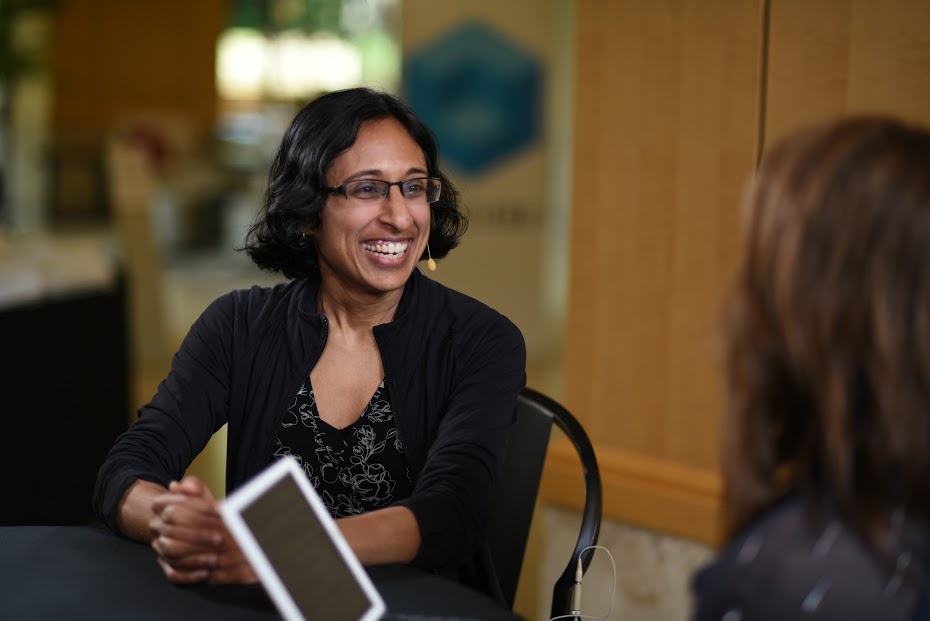 BIG DATA
BIG DATA
 BIG DATA
BIG DATA
 BIG DATA
BIG DATA
There are two fields with seemingly endless career opportunities: healthcare and computer science. And when medical care intersects with technology, the possibilities are life changing. Machine learning introduces new insights to healthcare professionals through compiling big data to improve the way doctors and clinicians can diagnose, treat and even predict outcomes for their patients, according to Finale Doshi-Velez (pictured), assistant professor of Computer Science at Harvard’s John A. Paulson School of Engineering and Applied Sciences.
Doshi-Velez is on the front lines of educating and researching tangible ways to improve mental health through machine learning. She is working with students in several areas, but her focus is on machine learning for healthcare applications focused on dissecting the autism spectrum and helping to alleviate depression.
Doshi-Velez spoke with Lisa Martin (@Luccazara), co-host of theCUBE, SiliconANGLE Media’s mobile live streaming studio, at the Stanford Global Women in Data Science Conference in Stanford, CA, about her work in these developing fields and how she is preparing the next generation by teaching students the emerging skills they will need in a new workplace. (*Disclosure below.)
This week, theCUBE spotlights Finale Doshi-Velez in our Women In Tech feature.
One of the projects Doshi-Velez is currently working on is applying machine learning to the autism spectrum. Children on the spectrum have individual needs, and the goal of this research is to use big data and machine learning to find more natural, more specific categories.
“Once we can divide this disease into better subgroups, we may be able to provide better prognoses and better treatments for these children instead of just lumping them into this big bucket,” Doshi-Velez said.
Another area of interest is personalizing treatment selections and treatment options for people with HIV and depression. “In these cases, there is a lot of heterogeneity in the way people respond to the disease, and with the large dataset available, there are huge opportunities to get the right treatment to the right people,” commented Doshi-Velez.
Comprehending the data is also important in this area. Doshi-Velez explained how formalizing notions of interpretability to the clinician is vital to helping the patient. Noting that the data is messy, helping the clinician to vet the suggestions from the application is critical, so they are seeking methods to make the algorithms interpretable to clinicians who are not data experts. This will allow them to consider new options in patient care.
This area is one where machine learning can never replace the human interaction necessary to treat patients. Doshi-Velez believes that the process needs both agents to get the best care possible.
At Harvard, Doshi-Velez teaches undergraduate and graduate computer science courses. However, not everyone in her classroom aspires to be a computer scientist. “Students realize that computers and data science are essential in whatever field they are [in]. They don’t necessarily come to Harvard thinking they are going to be a data scientist. But whatever field they end up in, whether it is economics or government or business, they quickly realize that data is very important,” she reported.
Many students end up in her undergraduate machine data learning course, which teaches them about evaluation of data and how to use these methods properly. Doshi-Velez noted that the onus is on the data scientist to explain assumptions in algorithms to people who are not experts in data science, because that could have a huge downstream effect.
Watch the complete video interview below, and be sure to check out more of SiliconANGLE and theCUBE’s coverage of the Stanford Global Women in Data Science (WiDS) Conference. (*Disclosure: TheCUBE is a media partner at the conference. Neither Stanford nor other sponsors have editorial control over content on theCUBE or SiliconANGLE.)
THANK YOU